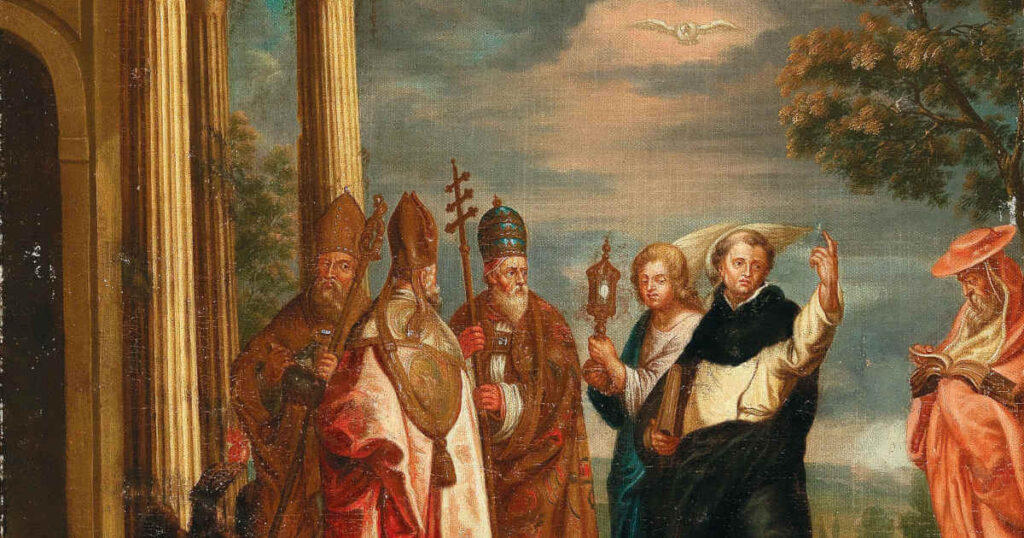St. Ambrose
St. Ambrose
Around the year 333 Ambrose was born at Trier, the child of a noble Roman family. After his father’s death he went to Rome, and was soon appointed consul with residence at Milan. While attempting to settle a dispute between the Arians and Catholics over the choice of a bishop, he himself was chosen, although only a catechumen at the time. Thereupon he devoted himself wholeheartedly to the study of theology, and gave his possessions to the poor. He was an illustrious preacher, and through his sermons brought Augustine to the faith and baptized him.

Candid and fearless no matter how strong the opposition, Ambrose was directed to confront Maximus, the murderer of the Emperor Gratian. When Maximus refused to do penance, Ambrose excommunicated him. Later he denied Emperor Theodosius entrance into church for his massacre of the inhabitants of Thessalonica. It was on this occasion that allusion was made to [King] David as a murderer and adulterer, and Ambrose retorted: “You have followed him in sin, now follow him in repentance.” Humbly, Theodosius accepted the penance imposed.
We often meet this saint in the Divine Office as a teacher and as an inspired composer of hyms (fourteen of the hymns attributed to him are definitely authentic, true pearls of religious poetry). His writings are vibrant with ancient Christian liturgical spirit, for his life was wholly rooted in mystery and sacrament. We can profit greatly by reading Ambrose’s works. He is one of the four great Latin Doctors of the Church.
Excerpted from The Church’s Year of Grace, Pius Parsch